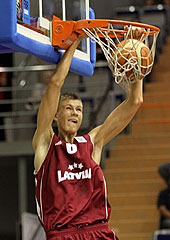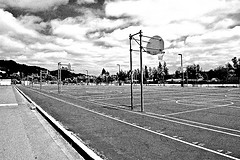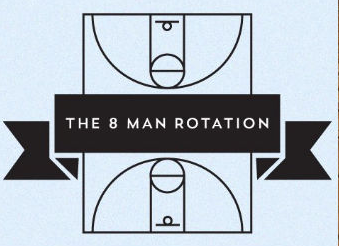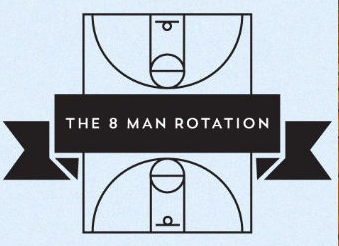TALENT ASSESSMENT TIP: Watch out for 'soft' eyes
The NBA Draft is tonight! Aside, if you follow me on Twitter at @SteveBoese, be forewarned that there will likely be a flurry of NBA Draft tweets starting at about 8PM ET tonight.
As I am sure I have previously covered on the blog here and over at Fistful of Talent, professional sports drafts offer up extraordinary amounts of interest and intrigue and insights about recruiting and talent management that remain relevant for HR/Talent professionals everywhere.
Team management, coaching staffs, and professional talent assessors all spend months evaluating the top playing prospects coming out of college and the European (and other) professional leagues. The teams spend ages watching the players in game video, measure all manner of player's physical attributes, (down to things like hand size), and often will schedule in-depth personal interviews to try to get a better feel for a potential player's likelihood for success in the NBA.
But even after all of this analysis of the player's actual performance in actual games, their 'measurables' like height, speed, jumping ability, etc., and 1-1 interviews, AND in a sport that has embraced advanced statistical analyses more so than any other in order to assess performance and shape strategy, there remains some let's just say odd ways to judge talent.
On one of the many sports talk radio shows I listened to in advance of tonight's draft, one of the network's 'expert' basketball analysts warned against drafting one particular prospect, a 7-footer from Latvia named Kristaps Porzingis.
This expert's objections to a team using a high draft pick on Porzingis didn't mention lack of ability to shoot or to pass, didn't mention some specific physical limitation the Latvian has that would make him unlikely to succeed in the NBA, nor bring up anything at all related to how data and statistical review of his game led to this negative assessment.
No, the main objective of this particular expert talent evaluator was, according to him, that Porzingis has 'soft' eyes.
The host of the show was a little taken aback by the comment, and asked the expert to elaborate. The expert said, and I am paraphrasing here, was that when he gazed at Porzingis he doesn't see a look that convinces him that Porzingis will want to work hard and compete at the extreme levels of intensity the NBA requires. In other words, Porzingis didn't have the proverbial 'Eye of the Tiger', but rather he had 'soft' eyes, and thus will never make it in the NBA.
The host of the show, still a little dumbfounded by this kind of talent assessment, eventually let the point go and moved on, but you could tell he remained unsure of the predictive ability of the expert's 'soft' eye test.
The relevance of this little tale for the rest of us?
That you may have a sophisticated candidate assessment tool, a success profile you have developed from analysis of top performers, and a structured and sound interviewing process designed to consistently identify the best candidate for a position.
You may have all of that, but if you run into a decision maker with their own version of the 'soft eyes' test then all your data, and process, and structure could be in jeopardy.
It will be interesting to see where Porzigins and his soft eyes end up getting selected tonight. With my luck, the 'expert' will be right in his assessment and Porzingis will end up failing for my Knicks.
 Recruiting,
Recruiting,  sports tagged
sports tagged  8 Man Rotation,
8 Man Rotation,  Recruiting,
Recruiting,  Sports,
Sports,  basketball,
basketball,  talent
talent  Email Article
Email Article 
 Print Article
Print Article 



